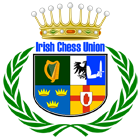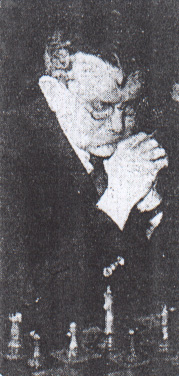Phytophthora Infestans
It is a sad irony, or perhaps, looked at another way, appropriately fitting, that the death of Austin Bourke should take place in the sesquicentennial year of the Great Famine. Few, if any, have contributed more than he to our understanding of that tragic era. Dr Bourke was the unchallenged authority on the epidemiology of phytophthora infestans, the potato blight that precipitated the evevnts of 1845-47, and was, in the wider sense, an agricultural meteorologist of world repute.
Education
Austin was born in Dungarvan, where his father was station master for the Great Southern and Western Railway. After an early education in Dungarvan and Waterford, Austin proceeded to University College, Cork, and graduated with first class honours in mathematical sciences in 1933, being awarded the Peel Memorial Prize as the outstanding graduate of the year. He spent the next five years at UCC, completing an MSc and continuing as a lecturer in the college until he joined the newly-formed Meteorological Service early in 1939.
Austin's brilliant academic performance at university was matched by almost equal success in a wide range of extracurricular activities. He became president of the students' union, served as editor of the student newspaper, and was actively involved in the college dramatic society and the hurling club. Most notably, however, he excelled at chess, representing Ireland at the Warsaw Chess Olympiad in 1935, and his interest in the game was ultimately to culminate in his becoming Irish champion in 1951.
Meteorology
On joining the Meteorological Service, Austin spent periods at both Foynes and Dublin Airport before becoming assistant director of the service in 1948, and director in 1964 - an appointment he held until his retirement in 1978. It was during his period as assistant director that his interest in agricultural meteorology evolved, and he was responsible for the development and implementation of a technique, still used today, for forecasting the occurence of potato blight. His success in this area of research led to a 12-month appointment in 1955 as special advisor to the Government of Chile under a UN aid programme, since that country was at the time suffering great hardship from an epidemic of the desease. He was struck by the similarities between conditions in Chile and those which had pertained here more than a century before, and thus arose his interest in the Great Famine, a topic that was to be his congenial obsession over the next 40 years.
Potatoes
Austin Bourke's major contribution to the contempory analysis of the famine era was to shift the focus of attention from the administrative history of the period to the potato itself, to the desease to which it succumbed, and to the impact of both on the rural community of Ireland in the middle years of the 19th century. In doing so he was responsible for the revision of many of the over-simplistic interpretations of that unfortunate period in our history, and opened up the field to the economic historian. In particular he was a spirited defender of Charles Trevelyan, the British civil servant responsible for Irish fiscal policy during the famine years, and the man traditionally seen as almost personally responsible for our national trauma at the time.
Bourke's early work on the topic became the subject of a thesis entitled The Potato Blight, Weather and the Irish Famine, for which he was awarded a PhD degree in 1967. A second NUI doctorate, a DSc, followed honoris causae in 1973 in recognition of his outstanding contribution to Irish science in general. Several years later, however, he was to disclaim this latter honour in somewhat controversial circumstances, by handing it back in protest against the then US policies in Latin America; the gesture was prompted by the award of an honorary degree to Ronald Reagan by the NUI on the occasion of his visit to Ireland in 1984.
Meanwhile Dr Bourke's work in agrometeorology was also receiving inter- national recognition. From 1958 to 1962 he was President of the Commission for Agricultural Meteorology of the World Meteorological Organisation, and in 1975 he was awarded the William F Peterson gold medal for his work in the field of plant biometeorology.
Dr Bourke continued with his professional and academic interests after his retirement from the Meteorological Service in 1978. He published many more papers on the famine period, and extended the scope of his researches during the 1980s by undertaking, with H.H.Lamb, a major EU project on the meteorological aspects of potato blight in western Europe in the 1840s.
Felicity
Dr Austin Bourke will be fondly remembered by his many friends and colleagues as much for his genial, jovial and convivial personanlity as for the excellence of his scientific work and the felicity of style with which it was invariably presented. He is survived by his wife Clodagh, sons Adrian and Austin, daughter Iseult, and several grandchildren.

